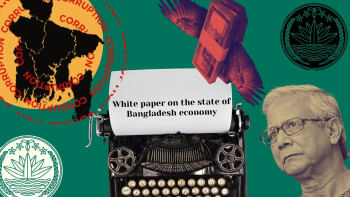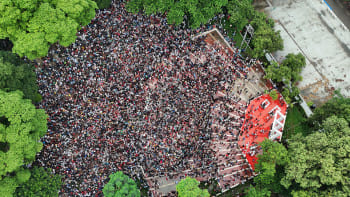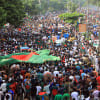A journey from repression to recognition

Bangladesh being named The Economist's Country of the Year in 2024 is a tremendous achievement for the country—one that all Bangladeshis can be proud of. Each December, The Economist awards this title to a country that has made significant progress over the past year. This year, Bangladesh earned the prestigious accolade for "toppling a despot and taking strides towards a more liberal government." This recognition is particularly meaningful for a nation that has recently undergone a major political transition, overthrowing an extremely corrupt and autocratic regime of 15 years through a student-led mass uprising.
The report highlights the remarkable journey of the Bangladeshi people in overcoming political repression and paving the way for a brighter, more democratic future. As the Hasina regime grew increasingly repressive—marked by election rigging, jailing of opponents, and violent crackdowns on dissent—the people united and took to the streets to assert their rights. During the July uprising that ultimately led to the fall of Sheikh Hasina, hundreds were shot dead by the regime, and around 20,000 were wounded. The heavy toll paid to oust an autocratic regime is a rare and profound example of resilience in modern history—even though Bangladeshis are no strangers to demonstrating such resilience in the face of oppression.
While the political transition has inspired optimism both nationally and globally—showcasing the resilience and determination of the Bangladeshi people—the nation now faces significant economic challenges. Rebuilding the country will require addressing the economic consequences of the previous regime. During Sheikh Hasina's 15-year rule, narratives of substantial economic growth were propagated, but these claims have since been exposed as largely illusory. A government-commissioned white paper revealed that an estimated $234 billion was syphoned out of the country between 2009 and 2023. Additionally, Bangladesh has long struggled with inflation and unemployment, issues that must now be tackled urgently. However, with unity, these challenges can be overcome.
The interim government, led by Prof Muhammad Yunus, has prioritised rebuilding trust and stability. Its initiatives include economic and other reforms, restoring public order, and addressing social grievances. Despite the challenges, the progress made so far has been promising. Moving forward, Bangladesh must establish positive relations with other countries for mutual benefits, ensure judicial neutrality, and organise free and fair national elections. These steps are critical to solidifying the country's progress towards a more liberal democracy.
This is also a time for Bangladesh to correct past wrongs and begin anew—building a nation founded on equity, justice, the rule of law, and human rights. We hope the global community will continue to recognise our achievements and stand by Bangladesh as it strives to fulfil the democratic aspirations of its people.


 For all latest news, follow The Daily Star's Google News channel.
For all latest news, follow The Daily Star's Google News channel. 










Comments